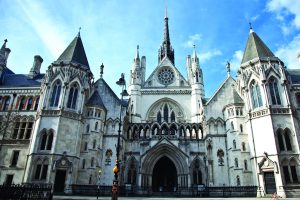Shropshire County Council granted planning to a developer to build housing on land in Shrewsbury that was subject to a statutory trust for the public’s enjoyment. The case reached the UK Supreme court and a decision by the court was issued on the 1st of March rejecting the planning permission granted.
The local authority argued that it utilised its powers to dispose of statutory trust land under the Local Government Act 1972.
Sections 123(2A) and (2B) LGA 1972 provide that before disposing of land which is subject to a statutory trust, the council must notify the public and disclose its intentions the local newspaper for two consecutive weeks. They must take into account any objections to the intended disposal. If the council disposes of land having complied with that procedure, then the land can be disposed of from the trust.
Section 128(2)(a) provides that a disposal of land “shall not be invalid by reason that” the requirement has not been complied with. Section 128(2)(b) goes on to say that the purchaser of the land “shall not be concerned to see or enquire” whether any such requirement has been complied with.
The local council’s argument was that s. 128(2) extinguishes the rights enjoyed by the public under the statutory trust, or at least that the rights of the public to access the land did not survive in a form that gave rise to a material consideration that the planning committee needed to consider when deciding whether to grant planning permission.
The Supreme court found that the two relevant sections of the Act have been misconstrued and that the correct interpretation of section 123(2A) and 128(2)(a) should be as follows:
The Supreme Court holds that s. 128(2) does not terminate the rights of the public to access and enjoy the land. Those rights are only extinguished if the local authority complies with the bespoke consultation requirements set out in s. 123 LGA 1972.
If Shropshire Council were correct that as soon as the land comes into private ownership, the trust must be extinguished. This would have allowed the Council to operate with the land outside the scope of the requirements of the LGA. If this was the case, there would hardly be any need for the protection of the purchaser provided for under s. 123(2B) or s. 128(2)(b).
The Supreme Court holds that in light of the clear and specific wording in s. 123, the generally applicable provision in s. 128(2) cannot be used to override the statutory trust. The sections of the Act should not be read against one another, but indeed in conjunction with each other.
Section 128(2) confers a useful protection for people dealing in land with the authority, but it should not be used in the context of disposing of land from a public trust and preventing the public from enjoying their rights over the land granted via the public trust.
The continuing existence of the statutory trust over the land is an important factor when considering a planning application and this was not considered by Shropshire Council. Therefore, the planning permission was granted not following constitutional requirements and should be invalid.
This is an important decision of the Supreme court, because it is showing that the UK courts are prepared to put and uphold restrictions on the privatisation of public land.

